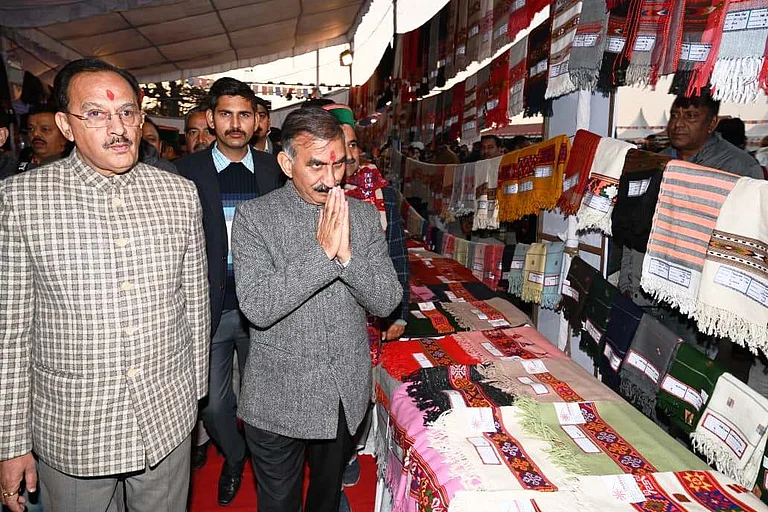In February 2022, against rising tensions in the region, Israeli Defense Minister Benny Gantz visited Bahrain to sign a landmark security cooperation agreement with the Kingdom. Bahrain was among the four Arab countries that joined the Abraham Accords, a series of diplomatic accords with Israel facilitated by the Trump administration. The Kingdom thus became the first Gulf state to formalise such a pact with Israel. The agreement, driven by mutual concerns about Iran, was summarised by the Israeli defense ministry in the following words:
“The MOU (Memorandum of Understanding) will support any future cooperation in the areas of Intelligence, mil-to-mil (military to military), industrial collaboration and more.”
This is where Antony Loewenstein builds the central argument of his new book “The Palestine Laboratory: How Israel Exports the Technology of Occupation Around the World”.
Israel’s military-industrial complex explains Loewenstein uses occupied Palestinian territories as testing ground for weaponry and surveillance technology, which they later export globally to authoritarian regimes to suppress dissent within their countries. This expertise in managing a perceived ‘enemy’ population makes Israel and its ‘architecture of control’ highly sought after on the international stage. Israel has sold defence equipment to so many nations that it hopes to insulate itself from any political backlash. It’s these allies that have given Israel the much-needed protection against any international censure. Selling this technology of occupation and high-tech weaponry is the kind of arms policy that ensures alliance and friendship with despot nations and democracies alike. Israel thus prides itself on being an indispensable nation.
Israel’s leading defence companies have experienced considerably increased demand over the years. In the global arms fairs around the world, they promote their weapons, killer drones and surveillance tech with a tagline of being ‘battle-tested’ in Gaza. Developing a world-class weapons industry with equipment conveniently tested on occupied Palestinians, Israeli security companies have become some of the most successful in the world. The Palestine Laboratory has become a signature selling point for them.
After the October 7 attack on Israel by Hamas, US President Joe Biden and most of the Western world lined up behind Israel and extended their unequivocal support. The images of Gaza that followed were apocalyptic. In its ‘Scorched Earth’ campaign, Israel live-tested new weapons in Gaza. The tools of war were displayed on social media for domestic and international audiences and potential global buyers.
Bangladeshi-American graphic artist Debashish Chakrabarty encapsulated in a series of images how Israel sold its most repressive technology in the world to some of the worst human rights abusers.
While advertising its equipment to an elite audience of global buyers, one of Israel’s most prominent defence companies showed a promotional video about killer drones, which have been used in Israel’s war against Gaza and over the West Bank. The footage had been filmed a few months ago that showed the reconnaissance of Palestinians in the West Bank.
Loewenstein argues that ‘Palestine is Israel’s workshop, where an occupied nation on its doorstep provides millions of subjugated people as a laboratory for the most precise and successful methods of domination’. This kind of dehumanisation is the inevitable result of occupation. What’s more appealing to a lot of regimes around the world is how Israel gets away with the politicide of Palestinians. The dissolution of the Palestinian people’s existence as a legitimate social, political and economic entity. This may also include their partial or complete ethnic cleansing from the territory known as the Land of Israel.
The desire to militarily destroy an opponent, to erase its history and its ability to remember, is what all the authoritarian regimes around the world try to accomplish. It’s here that Israel wants to serve as a role model. ‘Harvard of anti-terrorism’ is what many military analysts have termed Israel.
The central premise of Antony Loewenstien’s book is that Israel uses Palestine as a testing ground for weapons that it sells to other despotic regimes of the world in return for both money and legitimacy for its actions. The occupation of Palestine is, therefore, not a financial burden on Israel but quite the opposite. It is an invaluable testing ground for new equipment manufactured to serve other militaries across the globe. Israel, a small country, thus scrambles to carve out a niche for itself in the transnational military-industrial complex of the world. The benefits of this never-ending war are enormous for Israel, and any resolution to this conflict would be bad for its business.
Through global investigation involving secret documents, revealing interviews and incisive reportage, Antony Loewenstein, in this groundbreaking book, proves how Palestine has become the perfect laboratory for Israel and exposes its role in the rise of despotism around the world through the commercialisation and export of its tools of occupation.

























